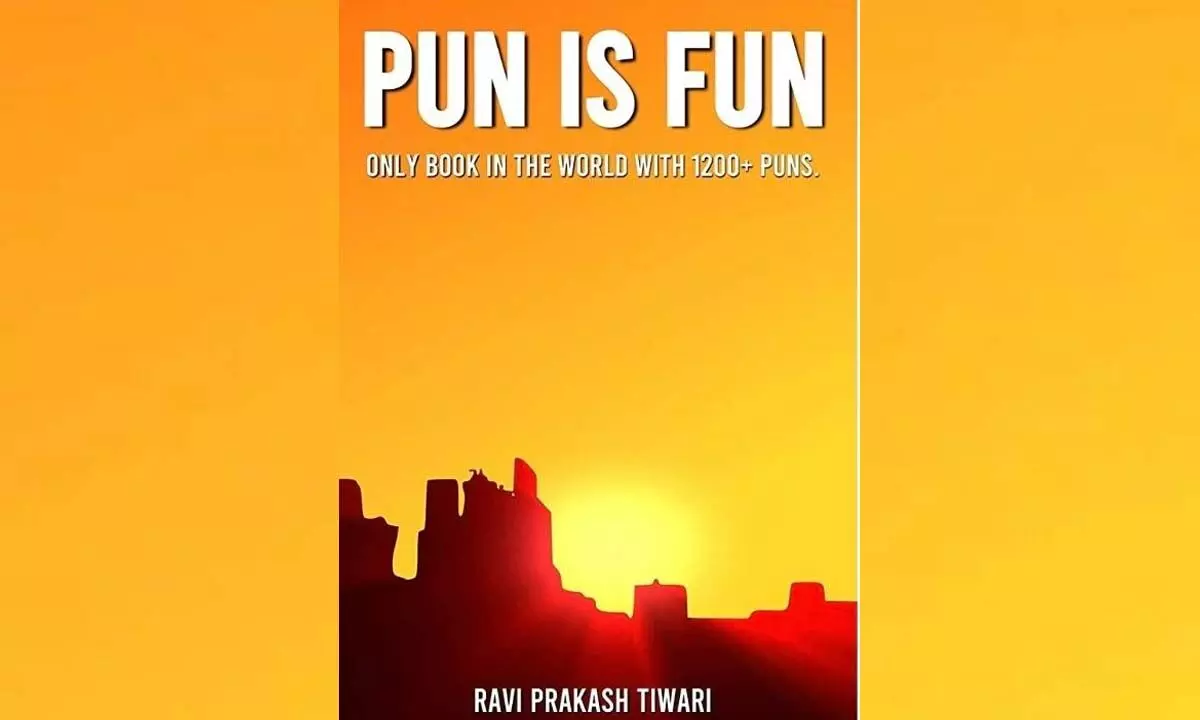King of Puns

King of Puns
Ravi Prakash Tiwari, the king of puns, has come into his own by bagging three prestigious records for having penned down more than 1200 delectable puns in his acclaimed book, ‘Pun is Fun’.
Ravi Prakash Tiwari, the king of puns, has come into his own by bagging three prestigious records for having penned down more than 1200 delectable puns in his acclaimed book, ‘Pun is Fun’. He has penetrated “India Star Book of Records”, “The Influencer Book of World Records”, and “Harvard Book of World Records”. Such a feat has no parallel in the domain of puns in the world.
A pun is a form of wordplay that exploits multiple meanings of a term or similar-sounding words for an intended humorous or rhetorical effect. The Roman playwright Plautus was famous for his puns and word games. Shakespeare is estimated to have used over 3,000 puns in his plays. There are three types of puns.
A homophonic pun uses word pairs that sound alike but are not synonymous. So, for example, “atheism is a non-prophet institution”, the word prophet is put in place of its homophone profit, altering the common phrase “non-profit institution”.
A homographic pun exploits words spelled the same (homographs) but with different meanings and sounds. Because of their origin, they rely on sight more than hearing, contrary to homophonic puns. They are also known as heteronymic puns.
Homonymic puns, another common type, arise from the exploitation of words that are both homographs and homophones. For example, the statement “Being in politics is just like playing golf: you are trapped in one bad lie after another”, Puns on the two meanings of the word lie as “a deliberate untruth” and as “the position in which something rests”.
In the book ‘Pun is Fun’; his flair lies in employing the same word more than one to seven times in different meanings in a sentence. This book caters for the need of literary buffs of all categories. This book develops the vocabulary of readers. The puns in the sentences are related to everyday matters. The usage of the term “study” in a sentence exhibits punning at its best because this term is employed seven times in one sentence displaying seven different meanings of study: After the study of the study on Tagore inside the study that contained the study of a monument, he proved with studied sincerity that he was a study in a profound literary study on works by Tagore. Words related to names of fruit [carrot], animals [dog, horse, cow], birds [games, crow], food [egg], profession [doctor, pilot, cashier, engineer], ailments [hamstring, cataract, plague], objects or instruments [purse, pen, net, iron, jar, map, mantle, magazine, needle, projectile, nail, umbrella, table, tank, tab, torch, toy, telescope, steel, string, sack, spectacles, comb, fan, flag, etc.], places [station, school, squares, quarters, quarry, field, etc.], months[march, august], natural forces[flood, storm, fire], persons[ virgin, husband, maiden, father, man, dupe, drone, genius, consort] etc. have been employed to pen down puns.
He has the uncanny knack of writing 20-25 puns daily.
Many dailies and magazines have offered him precious space to let his creativity bloom in the paradise of literature. I devoutly hope this year and each elapsing year will be a vintage year in his life.
(The writer is an Internationally acclaimed columnist and Literary Critic based in Ferozepur, Punjab)














